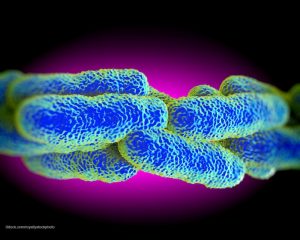A Legionnaires’ Disease outbreak at the San Quentin State Prison has forced that facility to shut off the water. There are six confirmed cases, and at least 51 other possible cases. Those prisoners who have been diagnosed with the illness have been transferred to hospitals for treatment. The possible cases are under observation at the prison’s medical unit.
Portable toilets are being brought in for the prisoners’ use. The kitchen has stopped producing meals; inmates are eating boxed meals. The prisoners who may be sick live in all areas of the prison. The Marin County Health Department is investigating the outbreak.
 No visitors have been allowed in the facility since the outbreak began. No prisoners can be transferred in or out of the facility as well. Inmates are being told they cannot drink the water and should not touch it.
No visitors have been allowed in the facility since the outbreak began. No prisoners can be transferred in or out of the facility as well. Inmates are being told they cannot drink the water and should not touch it.
The prison receives water from the Marin County Municipal Water District. It is stored on a tank on the prison property. Stored water has an increased risk for contamination from Legionella bacteria, especially if the tank is not disinfected often.
The symptoms of Legionnaries’ Disease are like pneumonia, including high fever, cough, and chills. Other symptoms may include diarrhea, nausea, and vomiting. The illness is not spread person-to-person, but is contracted from breathing contaminated mist or water vapor.
Prisons are responsible for the health and well-being of inmates. These facilities are often at high risk for food poisoning and other disease outbreaks because of crowded conditions. Minimum safety standards must be met in these facilities.




